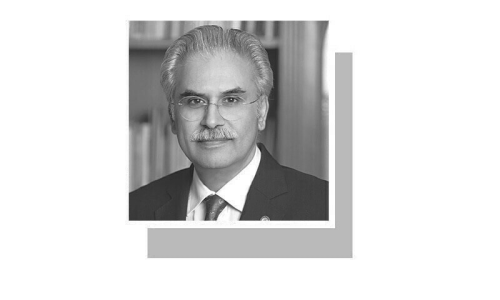Springing a Christmas surprise, Prime Minister Narendra Modi “dropped in on” Lahore to wish Pakistan Prime Minister Nawaz Sharif on his birthday on Friday. This time there was no ginger handshake. As Modi descended from the plane in Lahore, he was greeted with a bear hug by Sharif. The last time an Indian prime minister had set foot in Pakistani soil was when former Prime Minister Atal Bihari Vajpayee attended a South Asian summit in 2004. The optics of this surprise visit are being compared to Vajpayee’s bus journey across the Wagah border in 1999 (though the grim sequel to that visit was the border war in Kargil).
Since the National Democratic Alliance came to power last year, ties between India and Pakistan have swung between extremes. Modi, master of the big diplomatic gesture, invited Sharif to his swearing in. But just a few months later, foreign secretary level talks were called off because the Pakistani high commissioner met separatist leaders from Kashmir. This year, the high of the Ufa meet proved to be shortlived. Talks broke down once again over Pakistan’s engagement with Hurriyat leaders. Meanwhile, ceasefire violation across the Line of Control reached an intensity that was perhaps unprecedented. According to government estimates, there were 363 ceasefire violations by Pakistan between August and November 17, 2014. Pakistan, for its part, accused India of unprovoked firing across the LoC.
Playing tough
Much of the hostility has been hardline posturing to appease domestic constituencies on both sides. Sharif heads a government in a country where the balance of power between the military and the civilian establishments has traditionally been fragile, where violent fundamentalist forces militate against a constructive bilateral engagement. Softening towards India could have had political costs that would be hard to pay. Modi, who came to power after some expedient muscle flexing on Pakistan, would have felt the pressure of his Hindutva constituencies. The initial invitation to Sharif was followed up by some tough talking. While most governments in Delhi had looked the other way during the routine meetings between Pakistan and Kashmiri separatist leaders, which have taken place since the 1990s, the Modi dispensation chose to make it a red line for talks. Till the middle of this year, it also insisted on deciding the agenda for dialogue: cross border terror would be on the table, Kashmir would not, in spite of Pakistan’s best efforts. Brinkmanship on these two counts led to the dialogue dissolving.
Behind the scenes
Yet Indian engagement with Pakistan has always been a complex and many layered thing. Behind the highs and lows of the public political interaction, fuelled by a frenzy in the domestic media on both sides, lie the backchannels of diplomatic communication. By all accounts, these secret ties have never snapped, even when the political relationship had reached its lowest ebb. When the two countries were at war in Kargil, the Observer Research Foundation’s RK Mishra was reportedly sent to negotiate with the Pakistani side. Last year, Modi and Sharif exchanged a brief handshake at the SAARC summit in Kathmandu but are rumoured to have met in secret. This year, the same back channels of negotiation and dialogue brought the national security advisors together in Bangkok. Out of the media glare, both functionaries were more conciliatory; India even seemed willing to bring Kashmir back on the agenda for talks.
These under the radar meetings suggest that there is a political will to engage on both sides, in spite of domestic constraints.
After the party
Modi’s surprise visit to Lahore seems to express that eagerness to engage, outside the format of planned trips. Both governments averred that talks would continue, that the process of a comprehensive dialogue had been established. This is welcome news, but it has been met with some scepticism. Modi’s tenure has been marked by sudden, impetuous gestures of friendship, which have great emotional resonance among the people of both countries. The challenge is to build on these moments.
The conditions for dialogue are promising. Neither prime minister has to face an election in the short term, which relieves them of the burden of jingoism for a while. On Kashmir, there are two factors working in the Modi government’s favour. First, the Bharatiya Janata Party is part of the government in Delhi as well as in Jammu and Kashmir, which gives it more room for leverage. Second, Vajpayee, who famously said that a solution to Kashmir had to be found “insaniyat ke daire main (within the bounds of humanity)”, remains the most popular Indian prime minister in the Valley. The second NDA government must build on his legacy, be prepared to talk outside rigid, predetermined frameworks, and move towards a solution to the dispute.
The goodwill generated by Modi’s birthday visit must be put to more lasting use.
This article originally appeared on Scroll.In and has been re-produced with permission.














































